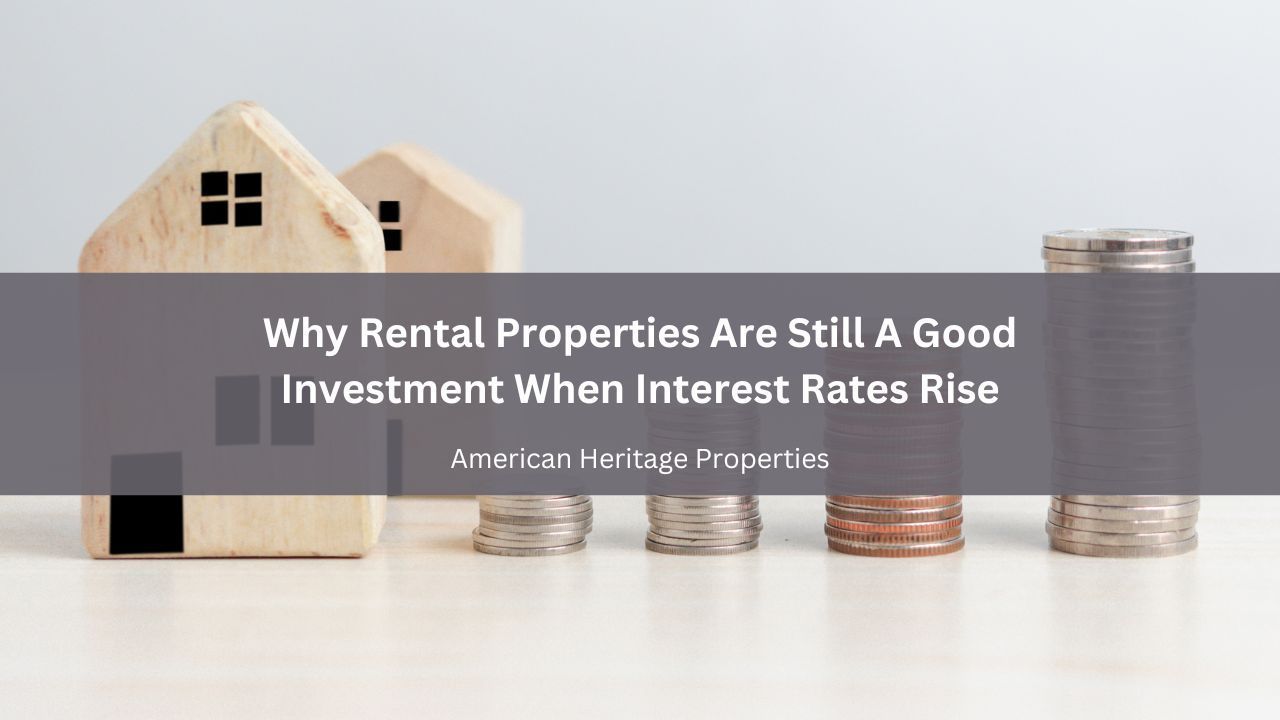Why Rental Properties Are Still A Good Investment When Interest Rates Rise

Key Takeaways
- Fixed-Rate Mortgages Provide Long-Term Stability: U.S. investors benefit from fixed-rate mortgages, which shield them from rising interest rates and allow rental income to grow over time while monthly payments remain constant, offering a significant advantage in inflationary environments.
- Rental Properties Are Long-Term Investments: Real estate should be viewed as a long-term wealth-building strategy, with returns generated through cash flow, appreciation, tax benefits, equity buildup, and inflation protection. Even in high-rate markets, patient investors who focus on strategic property selection and tenant demand can achieve strong long-term gains.
- Profitability Comes from Active Management and Adaptability: Rising interest rates don’t have to derail returns. Investors can enhance profitability by upgrading properties, monitoring for refinancing opportunities, and choosing high-demand locations. Success comes from managing what you can control and diversifying income streams to stay resilient through market shifts.
One of the standout advantages for real estate investors in the U.S. is the availability of 30-year fixed-rate mortgages. Internationally, most mortgage options come with variable, adjustable, or renegotiable rates, which can cause payments to spike unexpectedly, making it difficult to manage cash flow and long-term projections. These mortgages offer investors stability and predictability. Regardless of how market rates shift, your monthly payments remain unchanged, protecting your investment from sudden interest hikes. This is particularly beneficial when locking in low rates.

But what should investors consider when those interest rates begin to climb? We at American Heritage Properties will cover what you need to know about investing in real estate as interest rates rise!
Navigating Rising Interest Rates as a Real Estate Investor
While locking in a low fixed-rate mortgage is ideal, interest rate environments are always shifting. When borrowing becomes more expensive, the financial returns on investment properties can be impacted. If you're expanding your portfolio, high rates might cause you to pause or reconsider your investment timeline. That’s why understanding how rental properties generate income and remain profitable, especially in high-rate markets, is key to making smarter, more resilient investment decisions.
Think Long-Term
Owning and renting out properties should fundamentally be viewed as long-term assets. Evaluating profitability based on current numbers alone may not show the full picture. Over time, property values typically appreciate, and rental demand often grows, both of which can dramatically boost returns. If you hold your properties through market cycles, the long-term gains can far outweigh short-term fluctuations.
Where Rental Profit Comes From
Rental properties generate returns through multiple channels, including:
- Monthly cash flow
- Property appreciation
- Mortgage principal reduction (equity buildup)
- Protection against inflation
- Tax deductions

While some of these income streams carry more risk or require longer timelines, the key to success is balancing your profit sources. If one area, such as cash flow, is temporarily under pressure due to rising mortgage rates, appreciation or tax benefits can still drive overall profitability.
Mitigate Risk by Prioritizing Location and Demand
In any interest rate environment, location remains one of the strongest drivers of long-term value. A well-situated property in a high-demand area is more likely to attract tenants consistently, appreciate over time, and provide rental stability. Choosing the right market can help offset some of the strain from higher borrowing costs and preserve your investment's long-term growth potential.
Rental Rates Rise But Your Mortgage Stays the Same
One major benefit of a fixed-rate mortgage is insulation from inflation. As the cost of living rises, so do rental prices. Yet your mortgage payment remains unchanged. That means your rental income can increase while your major expense stays locked in, effectively improving your cash flow over time.
Ways to Boost Rental Income and Cut Operating Costs
Here are several strategies to improve profitability even when financing is more expensive:
Upgrade and Maintain the Property
Properties in top condition draw better tenants and command higher rent. Routine updates, like fresh paint, modern appliances, or improved outdoor spaces can justify pricing rent higher and reduce turnover.
Choose Locations Strategically
Experienced investors know that success starts with the right location. Look for neighborhoods showing signs of growth, such as new infrastructure, job creation, or increasing property values. Areas with strong tenant demand and limited supply often provide better stability and appreciation.

However, don’t rely solely on market trends or neighborhood reputation. Conduct thorough due diligence to ensure the investment supports your long-term goals.
Monitor for Refinancing Opportunities
Keep an eye on rate trends. If they drop in the future, refinancing your mortgage could lower your monthly payments and improve cash flow. Timing is everything, but staying prepared can position you to act when the market turns in your favor.
Let Inflation Work in Your Favor
For landlords with fixed-rate loans, inflation can actually be an asset. When you factor inflation into your projections, financing a property over 30 years can be far more cost-effective than paying upfront in today's dollars.
Adaptability Is Key in Any Market
It’s easy to be discouraged by rising interest rates, but smart investors understand that every market condition presents unique opportunities. The U.S. fixed-rate mortgage structure offers a layer of protection that many global investors don’t have. Rather than waiting for the perfect conditions, focus on controlling the elements you can, like choosing high-demand locations, managing expenses, and maximizing rental income. The more diversified your profit sources, the better insulated you’ll be against economic shifts.
Bottom Line
While interest rates will rise and fall, the fundamentals of sound real estate investing remain the same. U.S. investors benefit from fixed-rate mortgages that provide stability even in inflationary environments. By viewing rental properties as long-term investments and actively managing both income and expenses, you can maintain strong returns regardless of interest rate trends.Whether you're buying your first property or scaling your investment strategy, we can help you make the most of today’s market. Contact us today to learn how we can manage your real estate investment!









